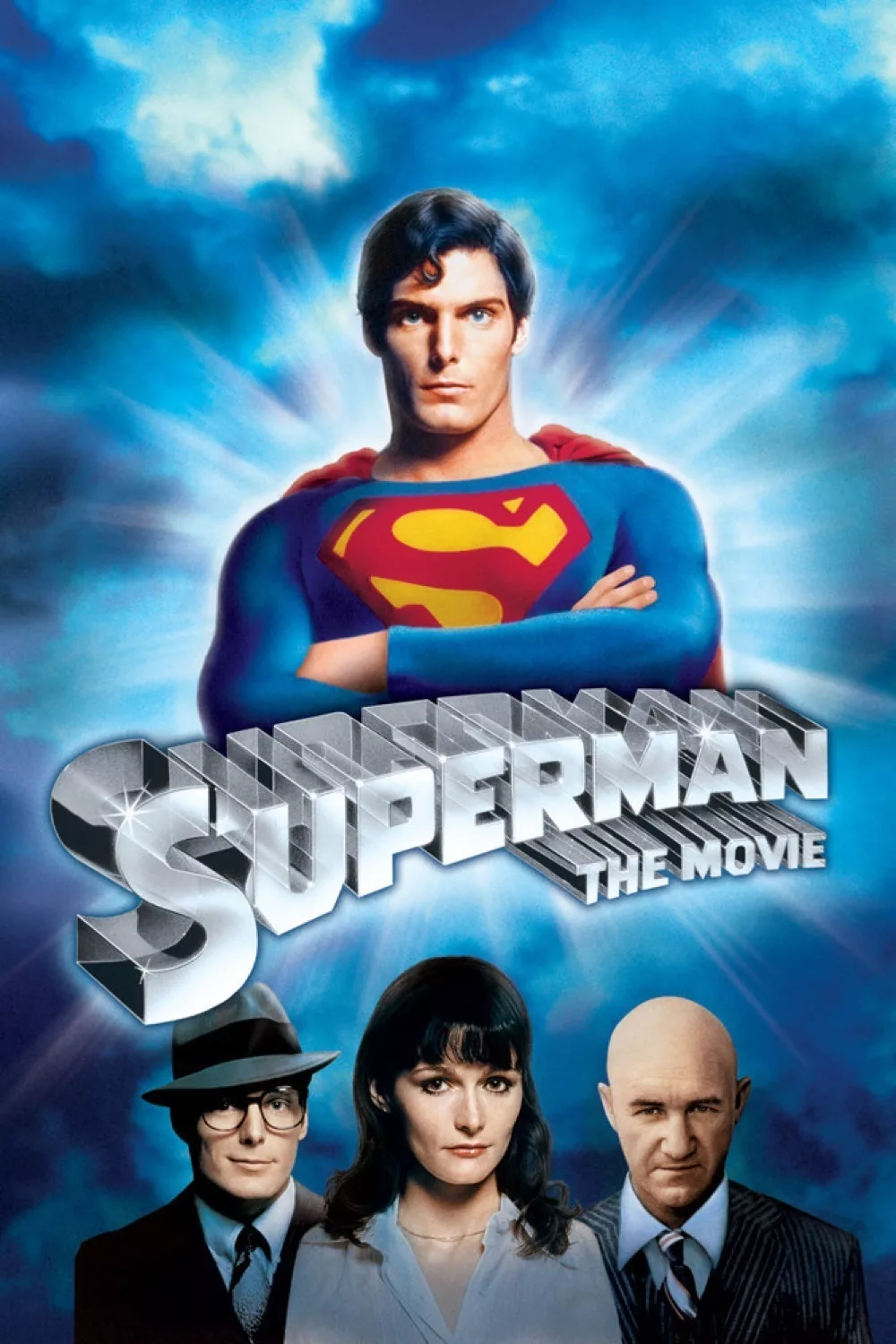Superman is a pure delight, a wondrous combination of all the old-fashioned things we never really get tired of: adventure and romance, heroes and villains, earthshaking special effects, and — you know what else? Wit. That surprised me more than anything: That this big-budget epic, which was half a decade making its way to the screen, would turn out to have an intelligent sense of humor about itself.
The wit, to be sure, is a little slow in revealing itself. The film’s opening scenes combine great intergalactic special effects with ponderous acting and dialogue — most of it from Marlon Brando, who, as Superman’s father, sends the kid to Earth in a spaceship that barely survives the destruction of the planet Krypton. Brando was allegedly paid $3 million for his role, or, judging by his dialogue, $500,000 a cliché. After Superbaby survives his space flight and lands in a Midwestern wheat field, however, the movie gets down to earth, too. And it has the surprising ability to have fun with its special effects. That’s surprising because special effects on this vast scale (falling airliners, derailing passenger trains, subterranean dungeons, cracks in the earth, volcanic eruptions, dams bursting) are so expensive and difficult that it takes a special kind of courage to kid them a little — instead of regarding them with awe, as in the witless Earthquake.
The audience finds itself pleasantly surprised, and taken a little off guard; the movie’s tremendously exciting in a comic book sort of way (kids will go ape for it), but at the same time it has a sly sophistication, a kidding insight into the material, that makes it, amazingly, a refreshingly offbeat comedy.
Most of the humor centers, of course, around one of the central icons of American popular culture, Superman (who, and I quote from our common memory of hundreds of comic books and radio and TV shows, in his dual identity as Clark Kent is a mild-mannered reporter for the Daily Planet). The producers held a worldwide talent search for an actor to play Superman, and although “talent searches” are usually 100 percent horse feathers, this time, for once, they actually found the right guy.
He is Christopher Reeve. He looks like the Superman in the comic books (a fate I would not wish on anybody), but he’s also an engaging actor, open and funny in his big love scene with Lois Lane, and then correctly awesome in his showdown with the arch villain Lex Luthor. Reeve sells the role; wrong casting here would have sunk everything.
And there would have been a lot to sink. Superman may have been expensive, all right, but the money’s there on the screen. The screenplay was obviously written without the slightest concern for how much it might cost. After Clark Kent goes to work for the Daily Planet (and we meet old favorites Perry White, Lois Lane, and Jimmy Olsen), there’s a nonstop series of disasters just for openers: Poor Lois finds herself dangling from one seatbelt after her helicopter crashes high atop the Daily Planet Building; Air Force One is struck by lightning and loses an engine; a thief climbs up a building using suction cups, and so on. Superman resolves his emergencies with, well, tact and good manners. He’s modest about his abilities. Snaps a salute to the president. Says he’s for “truth, justice, and the American Way.” And, of course, falls in love with Lois Lane.
She’s played by Margot Kidder, and their relationship is subtly, funnily wicked. She lives in a typical girl reporter’s apartment (you know, a penthouse high atop a Metropolis skyscraper), and Superman zooms down to offer an exclusive interview and a free flight over Metropolis. Supposing you’re a girl reporter, and Superman turns up. What would you ask him? So does she.
Meanwhile, the evil Lex Luthor (Gene Hackman) is planning an apocalyptic scheme to destroy the entire West Coast, plus Hackensack, New Jersey. He knows Superman’s weak point: the deadly substance Kryptonite. He also knows that Superman cannot see through lead (Lois Lane, alas, forgets). Luthor lives in a subterranean pad that’s a comic inspiration: A half-flooded, subterranean train station. Superman drills through the earth for a visit.
But enough of the plot. The movie works so well because of its wit and its special effects. A word more about each. The movie begins with the tremendous advantage that almost everyone in the audience knows the Superman saga from youth. There aren’t a lot of explanations needed; that’s brilliantly demonstrated in the first scene where Superman tries to change in a phone booth. Christopher Reeve can be allowed to smile, to permit himself a double entendre, to kid himself.
And then the special effects. They’re as good in their way as any you’ve seen, and they come thick and fast. When the screenplay calls for Luthor to create an earthquake and for Superman to try to stop it, the movie doesn’t give us a falling bridge or two, it gives us the San Andreas Fault cracking open. No half measures for Superman. The movie is, in fact, a triumph of imagination over both the difficulties of technology and the inhibitions of money. Superman wasn’t easy to bring to the screen, but the filmmakers kept at it until they had it right.




















